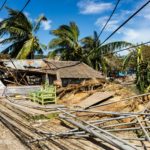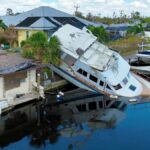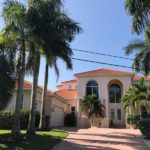No one wants to pay more for Home Insurance than they have to, especially in a state like Florida where homeowners insurance has a few unique things to consider.
1. Roof
Your roof is one of the single largest contributors to your Florida insurance premiums. Regarding your roof, there are two main things to consider: the roof’s shape and age.
You’ll get the best rate with a hip roof. It has edges parallel to the ground all the way around, like a pyramid. If your house has a roof that resembles an A shape, it’s a gable roof. This will increase the premium. Not sure what kind of roof you have? Check out our handy guide to figure out the shape of your roof.
Also, you have to consider your roof’s age. Here in Florida, the magic year is 2002. If your roof was built or re-built in the year 2002 or newer, then you should be able to get a better rate. The reason for this is because the state of Florida updated their building codes effective in 2002, which account for higher wind-speeds and stronger roofs.
2. Location
When it comes to Florida home insurance, there are a few factors to consider. The proximity of your house to a large body of water plays a role in determining both your home insurance and flood insurance rates. Additionally, the crime rate in your zip code also affects your premiums. So, keep these Florida home insurance factors in mind when choosing your ideal location.
3. Windows & Storm Shutters
You’ll get a better rate for having impact-resistant windows, which are pretty standard now in the state of Florida, but a lot of older homes may not have them.
If you have storm shutters or storm panels that you can screw onto your house that will cover your windows in case of a hurricane, you should receive discounts for that.
4. Alarm System, Fire & Smoke Detectors
If you have an alarm system that is monitored to detect a burglar or even a fire, then your home will be better able to be saved if something happens to it.
The more systems you have that can detect that something is wrong, the better your insurance premium will be.
5. Deadbolts
Deadbolts help keep unwanted people out; pure and simple. If you have doors with deadbolts, burglars are less likely to be able to steal your stuff and therefore your property is safer.
6. Updated Heating & Cooling System
Air conditioners, fans, and related equipment account for up to 20% of house fires in the United States. If you have an older A/C unit, or even one of those in-the-wall units, faulty wiring or mechanical and electrical failures are more likely to occur, thus increasing your chances for a fire.
Newer air conditioners are not only much safer, but they’re often much more energy-efficient, which should save money on your electric bills.
7. Updated Electric System
Closely related to your heating and cooling system is your house’s electrical system. Older homes may not have grounded electrical outlets which could cause damage to your property inside your house (which is also covered—to some extent—by your homeowners policy). They could also have older wiring that either has out-of-date safety codes or things could have happened to your house’s wiring over time.







